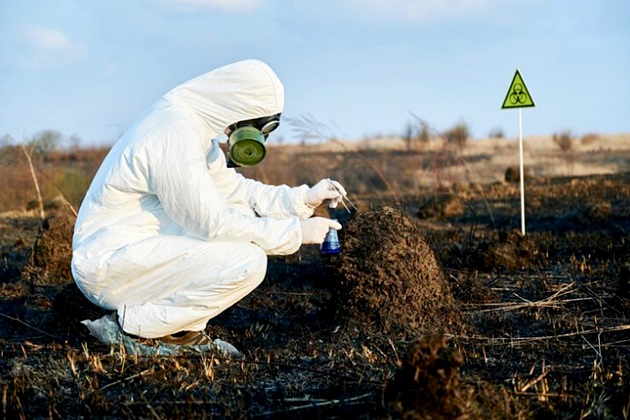881

Fruits and vegetables in the EU are increasingly contaminated with toxic PFAS, i.e., the so-called "forever chemicals" which the Commission abandoned plans to ban last year, found a study by the Pesticide Action Network Europe (PAN Europe), cited by Euractiv.
"The proportion of fruits and vegetables containing PFAS pesticide residues in the EU has nearly tripled over the decade," warns the study.
Per- and poly-fluoroalkyl substances (PFAS) are known to resist environmental degradation and have an impact on human health if not properly managed.
PFAS are widely used in various industrial sectors for their non-stick, heat-resistant, and waterproof properties, as well as in food packaging and pesticide formulations, resulting in residues that can be found in food products and drinking water.
According to the report, in 2021, 20% of fruits grown in the EU contained residues of at least one PFAS pesticide.
In January 2023, four EU countries – Germany, Denmark, Sweden, the Netherlands – and Norway requested the EU Chemicals Agency (ECHA) to initiate a new risk assessment on PFAS.
The European Commission published a "chemical strategy for sustainability" in 2020 aiming, among other things, for the phased elimination of PFAS, unless they are "proven essential for society."
However, the EU executive has not yet made a proposal in this regard.
"The approval of PFAS pesticides, often applied in mixtures, highlights significant deficiencies in both EU and national pesticide assessments," said PAN Europe's chief researcher, Angeliki Lysimachou, adding that their persistence and toxic properties "should have led to their rapid banning."
Rising Trends
According to the study authors, covering EU-wide data from 2011 to 2021, the proportion of products containing PFAS pesticide residues has increased by 220% for fruits and 274% for vegetables.
The highest increases in PFAS contamination in domestic production were recorded in Austria and Greece.
In 2021, the most frequently detected PFAS in contaminated products in the EU were the fungicide fluopyram, the insecticide flonicamid, and the fungicide trifloxystrobin.
Fruits vs. Vegetables
The report shows that, on average, a smaller percentage of vegetables (12%) are contaminated with PFAS pesticide residues than fruits (20%).
However, some vegetables are "as frequently contaminated as top fruits," the report states. The highest rates are found in chicory (42%), cucumbers (30%), and peppers (27%).
Among fruits, summer varieties are the most frequently contaminated – strawberries (37%), peaches (35%), and apricots (31%). (Photo: Freepik)




